You may also be interested in

Conclusions (‘Salina Bay’ Conclusions)
The following is a list of reflections derived from the International Conference on Multistakeholder Diplomacy, held in Malta ,11-13 February, 2005. The Salina Bay Conclusions were an official statement delivered by Ambassador Saviour F. Borg, Permanent Representative of Malta to the United Nations in Geneva, during the PrepCom 2 Plenary of the World Summit on the Information Society (Geneva, 24 February 2005).

Reflections on multistakeholder diplomacy
Through analysis of the procedural and institutional arrangements in the functioning of international bodies, Valentin Katrandjiev, seeks to measure the extent to which diplomats accept nonofficial networks and entities as equal partners in the diplomatic negotiation process. Katrandjiev analyses the trend that on the domestic front, societies demand greater public accountability of governments in the process of national foreign policy making. He attempts to do so through the organisational units in MFAs responsible for relationships with domestic stakeholders.

Climate for Change: Non-state Actors and the Global Politics of the Greenhouse
The text explores the role of non-state actors in global climate politics, analyzing their impact on greenhouse gas emissions and environmental policies. These actors include businesses, NGOs, and local governments, who often operate independently of national governments to address climate change. Their efforts are crucial in mitigating the effects of global warming and pushing for stronger environmental regulations on a global scale.
Global Health, Aid Effectiveness and the Changing Role of the WHO
The text discusses the changing role of the World Health Organization (WHO) in the context of global health and aid effectiveness.
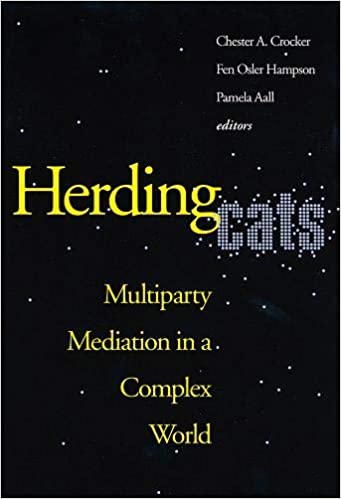
Herding Cats: Multiparty Mediation in a Complex World
Review by Geoff Berridge
Moving from monologue to dialogue to collaboration: The three layers of public diplomacy
The text discusses the three layers of public diplomacy: moving from monologue to dialogue to collaboration.

Inclusive Internet Governance
In this paper, Derrick Cogburn outlines a vision for multistakeholder democratic participation in global information and communication policy processes. Drawing on international regime theory, Cogburn suggests that the UN World Summit on the Information Society (WSIS) is an explicit attempt to formulate the principles, norms, and values of an emergent international regime to govern the information society in general, and the Internet specifically.
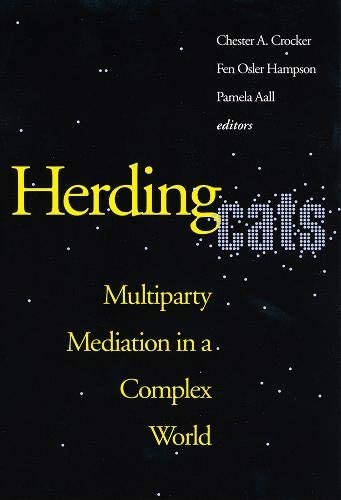
Herding Cats: Multiparty Mediation in a Complex World
This massive book is divided into three main parts, each of the chapters in which is a case study of a particular mediation written by an individual who played a key role in it. The three parts correspond roughly with a central concept of the book, the 'conflict cycle'. Thus the first part deals with cases of conflict prevention and management, for example 'Canada and the Crisis in Eastern Zaire' (Gordon Smith and John Hay). The second covers instances of the ending of violent conflict, such as 'The Road to Madrid' (James Baker). And the third treats cases of settlement and implementation, for...
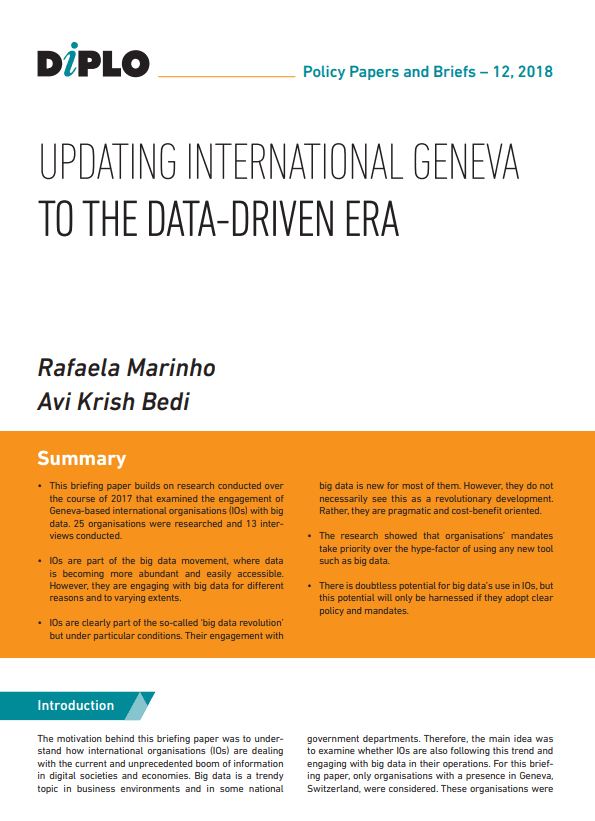
Updating International Geneva to the Data-driven Era (Briefing Paper #12)
In this briefing paper, Ms Rafaela Marinho and Mr Avi Krish Bedi outline their research on how international organisations (IOs) in Geneva address and use big data in their work.

The role of non-state actors in multistakeholder diplomacy
Raquel Aguirre Valencia gives a detailed study on the role non state actors (NSAs) play in the international arena. In her paper the author identifies many instances where NSAs have played major roles in the decision making process of many organisations such as the UN, WTO and the EU and where these organisations have welcomed and acknowledged the importance of such partnerships.

Development diplomacy by non-state actors
Raymond Saner addresses the growing influence non state actors are having on policy dialogue and policy negotiations in international development. Saner highlights how non state actors have become increasingly involved in the development policy field usually occupied by ambassadors and envoys representing Ministries of Foreign Affairs.

Summitry in the Americas: The End of Mass Multilateralism?
Summits among large numbers of leaders that convene on a periodic basis are the “new diplomacy.” In the Western Hemisphere, summits continue to multiply, whether in response to specific issues or to the desire by certain countries to assert their leadership. At the same time, skepticism regarding the value of summits has become widespread. A common view is that summits are largely photo ops for leaders and that their lofty communiqués are soon forgotten, leaving a wide gap between aspirations and implementation. These frustrations notwithstanding, summits are here to stay. Gathering...
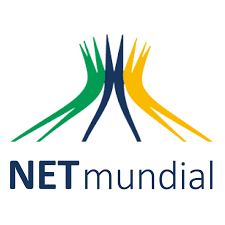
NETmundial Multistakeholder Statement
The NETmundial Multistakeholder Statement emphasizes the importance of a collaborative approach between stakeholders in addressing Internet governance issues. It highlights principles such as human rights, open standards, and transparent processes as key foundations for managing the Internet. The statement calls for shared responsibility, inclusivity, and diversity in decision-making processes to ensure a free, open, and secure cyberspace for all.

World Bank Symposium: Assessment for Global Learning
This session highlighted the need for a clear vision and strategy on the part of the international development community if we are to overcome the global “learning crisis”. This vision must place learning at the core of the post-2015 development agenda – as a tool that contributes to personal, social, and economic development. Many developing countries currently lack the vision and leadership required to overcome the learning crisis. If action is not taken, the situation will only worsen.

Stakeholderism in African Internet Governance: the Case of the .africa gTLD
In 2012, ICANN announced plans to delegate over 1000 new generic top level domain names, one of which was the long awaited .africa.

The World Summit on the Information Society (WSIS)
Written just before WSIS 2005, Petru Dumitriu takes us through an accounted journey of the WSIS process from 2003 in Geneva to the preparatory stages of the Tunis Summit in 2005. In this chapter Dumitriu also put forward suggestions for a post-multistakeholder summit where all stakeholders could use their creativity and resources to consolidate what has been established and to develop new forms of dialogue and partnership among themselves.
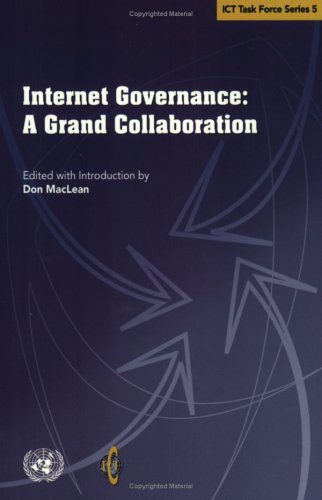
Internet Governance: A Grand Collaboration
This publication is an edited collection of papers contributed to the United Nations ICT Task Force Global Forum on Internet Governance (New York, 25 - 26 March 2004). The papers provide useful information on how many different organizations are already governing the Internet and its effects on society.

EU Support to peace mediation: developments and challenges
The text discusses the EU's role in supporting peace mediation efforts, highlighting both progress made and challenges faced in this area.

Multistakeholder diplomacy in the context of national diplomatic systems
William Assanvo writes about one aspect of the Multistakeholder Diplomacy Research undertaken under the auspices of the DiploFoundation with the support of the Global Knowledge Partnership. This research program encompassed various topics, of which multistakeholder practices within national diplomatic systems worldwide was one. The author conducted the research reported here during a three-month internship at the DiploFoundation from October 1 to December 31, 2004.

International Organisation in World Politics
The text highlights the increasing importance of international organizations since the end of the Cold War, particularly the United Nations and the European Union, in addressing major security issues and global challenges, while also emphasizing the emergence of a structure of global governance and the role of international non-governmental organizations and social movements in shaping global civil society.
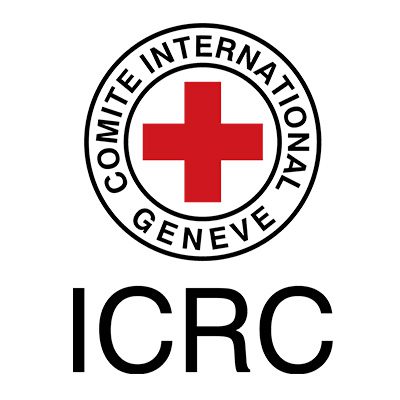
The Humanitarian Diplomacy of the International Committee of the Red Cross
The International Committee of the Red Cross engages in humanitarian diplomacy to promote respect for international humanitarian law and protect victims of armed conflicts.
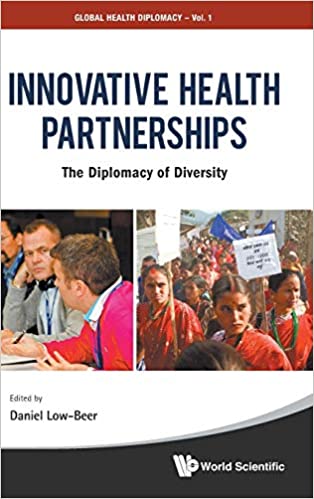
Innovative Health Partnerships – The Diplomacy of Diversity
The text discusses the importance and benefits of forming diverse health partnerships that promote innovation and collaboration.
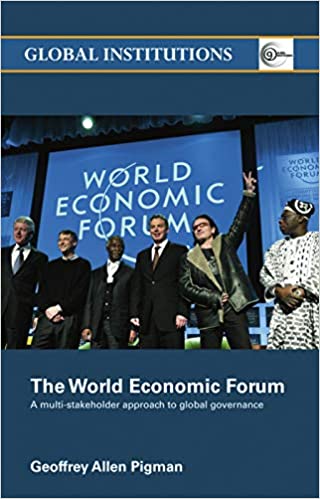
World Economic Forum: A Multi-stakeholder Approach to Global Governance
The World Economic Forum advocates for a multi-stakeholder approach to global governance, emphasizing the importance of collaboration between various sectors to address global challenges effectively. This inclusive method allows for diverse perspectives and expertise to be considered in decision-making processes, fostering innovative solutions and sustainable outcomes for a rapidly changing world.

Development diplomacy and poverty reduction strategy
Lichia Yiu and Raymond Sanner describe in detail the application of development diplomacy in the context of international co-operation for poverty reduction in Highly Indebted Poor Countries. In particular, the authors describe the goal of the International Labour Organisation – a non-state actor – in advocating the inclusion of employment and Decent Work Agenda policies in Poverty Reduction Strategy Papers, an instrument developed by the International Monetary Fund and the World Bank.

Multistakeholder processes in conflict resolution
In this paper, Anush Begoyan presents a summary of multistakeholder processes in conflict resolution, conducted for DiploFoundation; it provides a brief theoretical introduction to current developments within the international system, to changes in the reality and the conceptualization of the nation-state, and to resultant changes in the security system and the notion of national (state) interests.
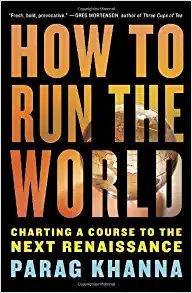
How to Run the World: Charting a Course to the Next Renaissance
The book "How to Run the World: Charting a Course to the Next Renaissance" presents a blueprint for solving global problems by leveraging networks of individuals and organizations. It explores the potential for a new era of collaboration and innovation to address pressing issues on a global scale, highlighting the power of interconnectedness and collective action in shaping a better future for all.

Commercial diplomacy in advanced industrial states: Canada, the UK, and the US
The text discusses the concept of commercial diplomacy in advanced industrial states such as Canada, the UK, and the US. It explores how these countries engage in economic diplomacy to promote their commercial interests internationally.
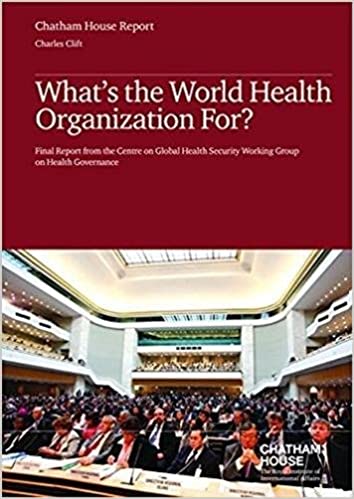
What’s the World Health Organization For?
The text discusses the purpose and functions of the World Health Organization (WHO), highlighting its role in global health and disease prevention.

Red Cross and Red Crescent Societies in multistakeholder diplomacy
In his paper, Chris Lamb reflects on the role of the Red Cross and Red Crescent Societies in Multistakeholder Diplomacy. He traces the IFRC's main developments since 1994, including its strategy document, and its obtaining of the status of observer with the UN General Assembly. The paper also looks at the future of IFRC in the light of its main objectives.

International Diplomacy Volume III: The Pluralisation of Diplomacy
The message is not present.

Post Cold War diplomatic training
Victor Shale's paper refers to a specific time period: the post-Cold War period which brought about new forms of conflicts, and high levels of terrorism. In the light of the change in traditional diplomacy, his paper examines multistakeholder diplomatic training and its importance as an approach in penetrating different cultures, and examines whether this approach could be used to minimise intractable conflicts.
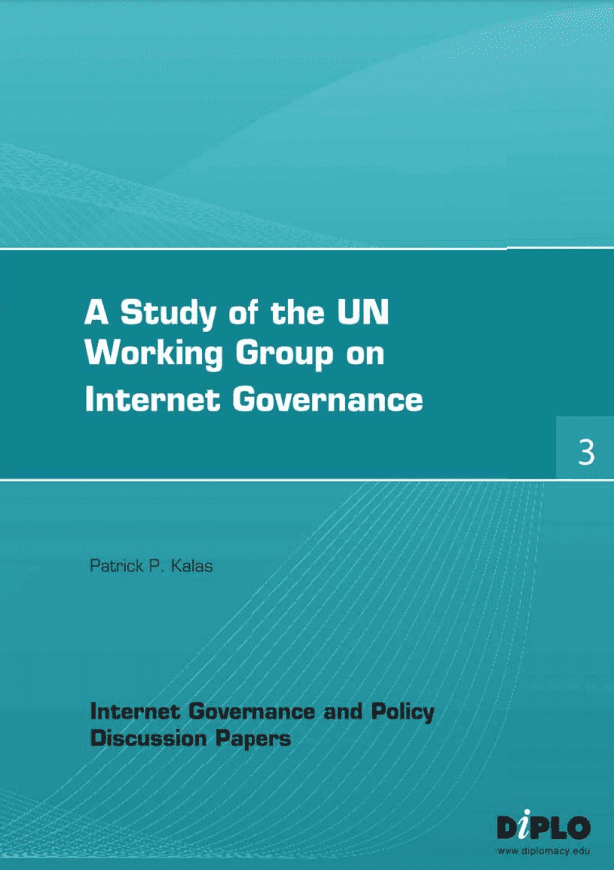
A study of the UN Working Group on IG – MSP in communication technology for development at the global level
The paper aims to identify best practices and lessons learned in multi-stakeholder partnership (MSP) practices at the global policy level through a participatory methodology based on interviews and an online electronic survey.
The Hypocrisy Threatening the Future of the Internet
The message highlights the threat of hypocrisy to the future of the internet, raising concerns about the negative impact of inconsistent actions and standards on the digital landscape.

Commercial diplomacy and international business
The importance of commercial diplomacy in international business cannot be overstated. By utilizing diplomatic tactics and strategies, businesses can navigate foreign markets effectively and establish strong relationships with partners and stakeholders. This approach is essential in overcoming trade barriers and fostering a conducive environment for global business growth and success. Emphasizing the role of diplomatic efforts in business dealings can lead to mutually beneficial outcomes and contribute to sustainable economic development on a global scale.

Multistakeholder diplomacy: Forms, functions, and frustrations
In the first part of the book, Brian Hocking, suggests the importance of seeing diplomacy in a context broader than that of the state system with which it is often associated. Hocking also explains how problems of interpretation and understanding, applicable to MSD as it is to other models, result from evolving patterns of diplomacy. Hocking also suggests that it is possible to recognise the intersection of two diplomatic cultures overlaying and informing one another, whose coexistence generates, simultaneously, creative and negative tensions.
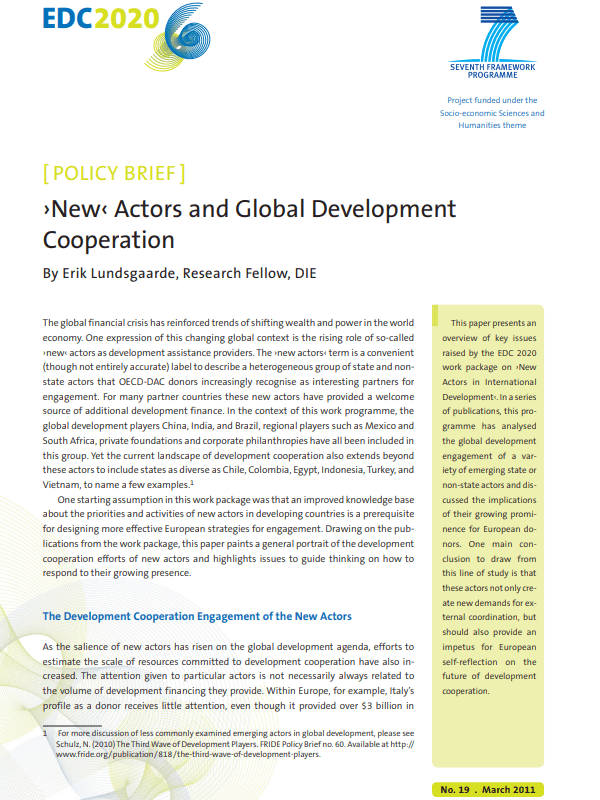
New’ Actors and Global Development Cooperation
The global financial crisis has reinforced trends of shifting wealth and power in the world economy. One expression of this changing global context is the rising role of so-called ›new‹ actors as development assistance providers. The ›new actors‹ term is a convenient (though not entirely accurate) label to describe a heterogeneous group of state and nonstate actors that OECD-DAC donors increasingly recognise as interesting partners for engagement. For many partner countries these new actors have provided a welcome source of additional development finance. In the context of this wo...
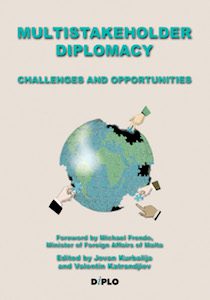
Multistakeholder Diplomacy – Challenges and Opportunities
This book is a collection of papers from Diplo’s February 2005 conference in Malta and from research interns involved in our Multistakeholder Diplomacy internship programme.

Multistakeholderism is real and can work’
'To the IGF in India I brought the personal challenge to look more deeply into the arguments I was not familiar with, and to try to find the “two sides of a coin” in every speech.' - Raquel Fortes Gatto from Brazil
Introduction and… The Health Diplomacy of Diversity
The message will focus on highlighting that diversity plays a crucial role in health diplomacy. It will emphasize the importance of embracing and recognizing diverse perspectives in addressing global health challenges effectively. The text will likely discuss how valuing diversity can lead to more innovative solutions and improved healthcare outcomes worldwide.

The multistakeholder model in Internet policy-making: A case study of Paraguay
Internet Governance was a vague topic in Latin America and especially in Paraguay. Only after Snowden´s revelations of mass surveillance, the topic becomes familiar.

UN conferences on the spot – voices from civil society
In the fourth chapter of the book, Britta Sadou, focuses on non-governmental organisations (NGOs). Sadou introduces this particular group as civil society actors and continues by discussing possibilities provided to NGOs by various UN summits. The author highlights some of the main world conferences during the 1990s and early 2000s and poses two important questions - Has the time of those huge events come to an end? What could be the alternatives?

Multistakeholder diplomacy at the OECD
In his paper John West outlines multistakeholder diplomacy at the OECD. West first explores the main points and facts of the OECD before going into the emergence of globalising stakeholder societies. Finally he gives his remarks on multistakeholder diplomacy at the OECD.
The latest from Diplo and GIP
Tailor your subscription to your interests, from updates on the dynamic world of digital diplomacy to the latest trends in AI.
Subscribe to more Diplo and Geneva Internet Platform newsletters!
Diplo: Effective and inclusive diplomacy
Diplo is a non-profit foundation established by the governments of Malta and Switzerland. Diplo works to increase the role of small and developing states, and to improve global governance and international policy development.


